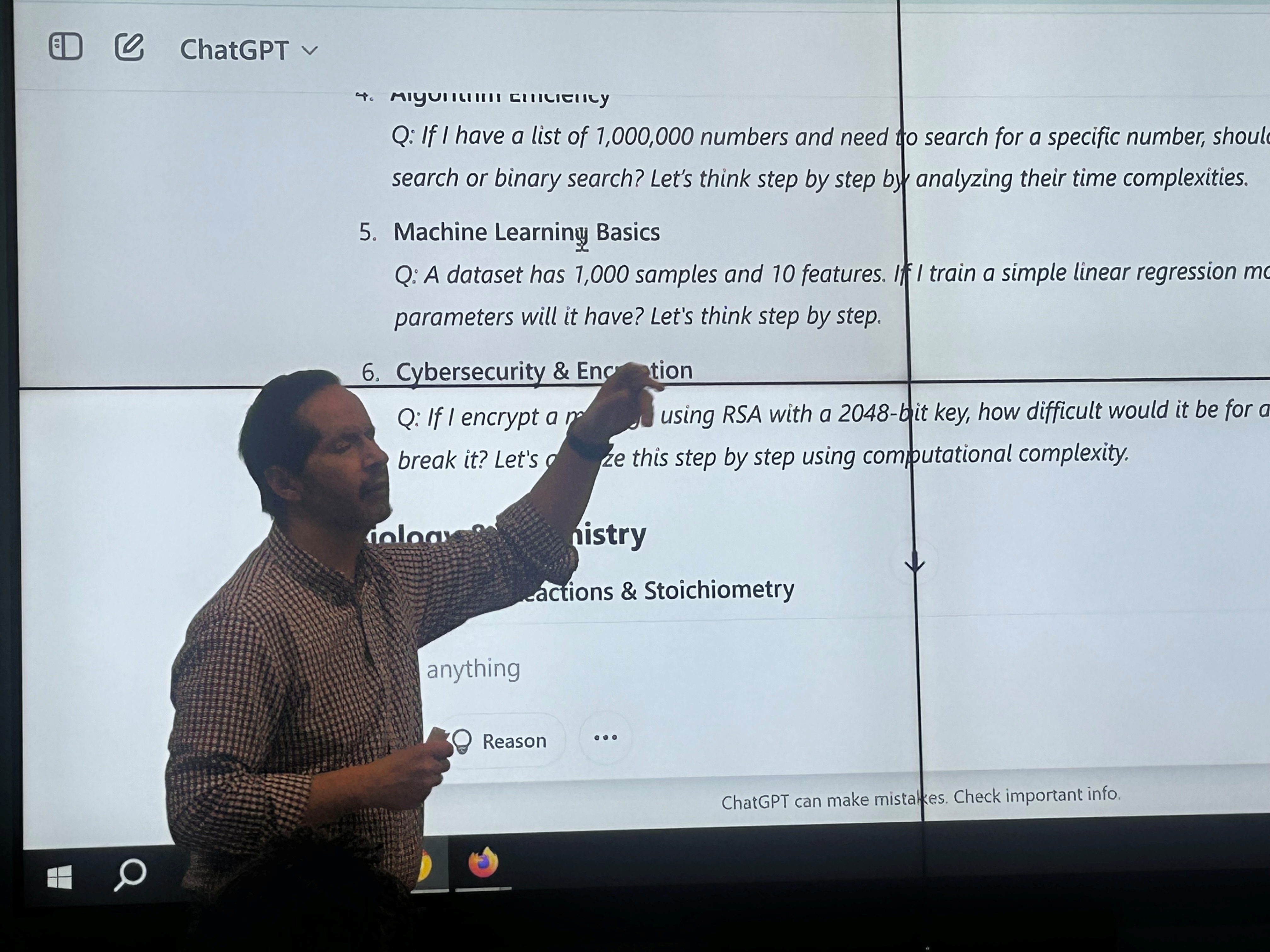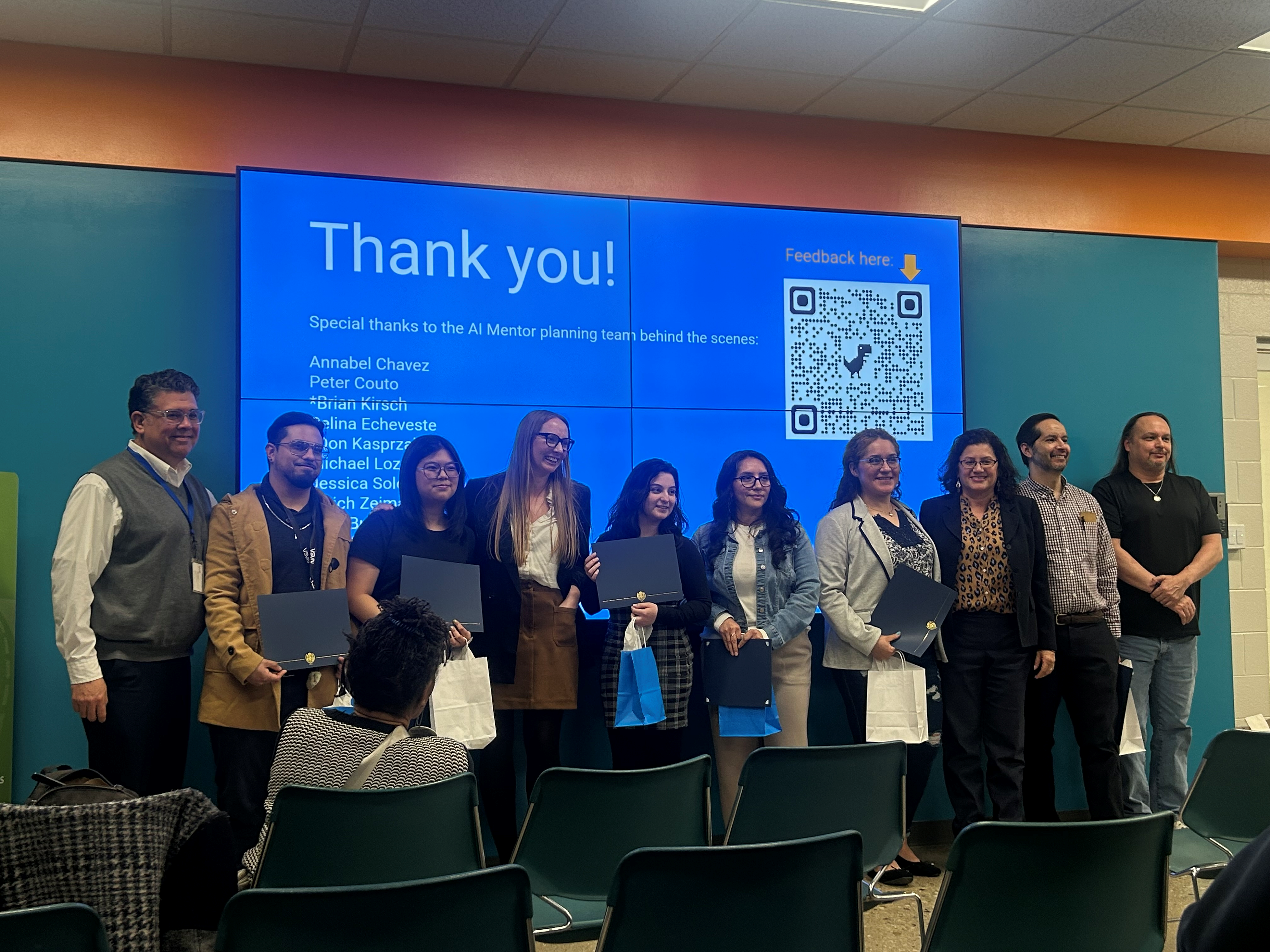
This was a cool opportunity to learn about AI and have students pass on what they learned to other students.
Hayman Ye Min always wondered: Can you grow bananas on Mars?
She posed that question to artificial intelligence, and it quickly gave her an answer and so much more. In a flash, Min, a student at Milwaukee Area Technical College, received a step-by-step guide on how to overcome a long list of challenges and begin interstellar fruit production.
Welcome to the ever-expanding world of AI, a technological tool changing the way people learn, research, create and work.
For eight weeks this spring, seven MATC students, including Min, explored various AI tools. In January, the students received Gemini, an AI tool from Google’s Higher Education AI team. The students received AI training and spent two months using Gemini and other AI tools such as ChatGPT, DALL-E and GitHub Copilot.
The aim of the program is to have these newly trained students mentor other students about AI.
They shared their experiences at presentations held April 7 at the college’s STEM Educational Center at the Downtown Milwaukee Campus, and on March 31 at the Oak Creek Campus.
The students discovered AI could be a wondrous tool to create content and images, to brainstorm ideas and concepts, to find data and research, and perhaps provide employment opportunities for students and current IT professionals.
“We’re seeing a real demand for AI,” said Samantha Burgos, an MATC retention coach who helped plan the mentor program. “This was a cool opportunity to learn about AI and have students pass on what they learned to other students.”
“I believe AI can change our lives in amazing ways,” said Nancy Saavedra Arenas, a student in the Business Management program. “This is a powerful tool and, when used responsibly, the possibilities are endless.”
At the April 7 session, Arenas told the crowd that she created her presentation of about 20 slides with content and images using AI.
Leonardo Alvarez, a consultant and programming developer, explained how to write clear and concise prompts to receive the best, most detailed information from AI tools.
Min, a student in the Associate of Science Chemical Technician program, said AI can be a vital resource for researching theses. The tools collect information quickly. “But you need to check the data,” she said. “Always verify.”
Veronica Herrera Solis, a student in the English as a Second Language program, delivered her presentation in Spanish, while another presenter, Amy Varela, translated. Herrera Solis used AI to create a way to count her daily calorie intake and devise a diet plan.
Varela said AI can provide a great starting point to create content but not an authentic finished product that represents the user’s own creativity. “Use AI, but make it yours,” said Valera, who is in the college’s Associate of Science program. “Always try to keep that human element.”
AI will provide numerous job opportunities, predicted Jesus Marquez, a student in the IT Networking and Infrastructure Administration program. Students should consider learning AI skills and current workers should think about enhancing their knowledge of the technology, he said.
“We need to embrace the future,” Marquez said.
Last June, MATC announced its new IT Network Specialist (AI, Cloud and Virtualization) program to prepare students for entry-level positions in information technology.
The associate degree program helps students make use of artificial intelligence incorporating what it is, the ethics of AI and how to use it as a tool, and sets students up for success using and applying cutting-edge technology in IT.
In that future, according to Google, AI can help researchers speed up analysis from days to minutes, and work seamlessly across departments and data sets. Students and faculty can collaborate easily and securely across disciplines and campuses. Campus staff can work more efficiently and effectively.
Still, the future of AI isn’t crystal clear. AI won’t take over the world, said Brian Kirsch, an IT Networking instructor at MATC, but there are many unsettled questions about privacy, ethics, copyright and ownership.
“AI will get even more complex as we go,” Kirsch said.
Newly minted AI mentors will continue to collaborate, host networking events and help others understand AI, Burgos said. They also are working to start an AI club at the college, she added.
“Until then, we are all still in contact and sharing what we've learned with each other and with each of our communities,” she said.
Learn about MATC’s Information Technology programs
About MATC: As Wisconsin’s largest technical college and one of the most diverse two-year institutions in the Midwest, Milwaukee Area Technical College is a key driver of southeastern Wisconsin’s economy and has provided innovative education in the region since 1912. More than 30,000 students per year attend the college’s four campuses and community-based sites or learn online. MATC offers affordable and accessible education and training opportunities that empower and transform lives in the community. The college offers more than 180 academic programs — many that prepare students for jobs immediately upon completion and others that provide transfer options leading to bachelor’s degrees with more than 40 four-year colleges and universities. Overwhelmingly, MATC graduates build careers and businesses in southeastern Wisconsin. The college is accredited by the Higher Learning Commission.


